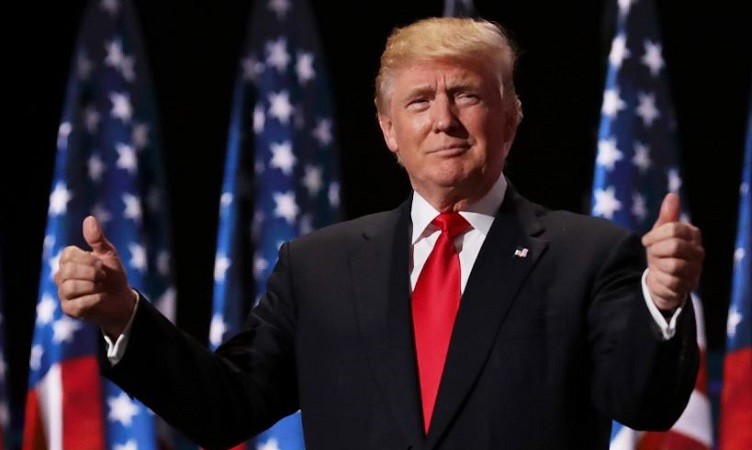
Donald Trump's 2024 bid for the US presidency brings forth a vision of stricter tax and trade policies in relation to countries such as India and Brazil. If elected as a Republican candidate, Trump's economic agenda revolves around implementing more severe tax and trade measures, especially when dealing with nations imposing higher tariffs on American goods. This proposed strategy aims to prioritize extending and deepening the tax cuts initiated during Trump's first term in 2017, dismantling regulations introduced by President Joe Biden, and imposing additional tariffs. These insights have been disclosed by individuals familiar with Trump's discussions on the matter.
In the event that countries like India or Brazil adopt elevated tariffs on American products, Trump intends to respond with equal severity, terming this approach as "reciprocity." These actions reflect the core principles of Trump's first-term trade doctrine, which was marked by a confrontational approach towards China, involving a series of retaliatory tariffs. Even under President Biden's leadership, the pressure on China has persisted, with additional measures targeting critical technology sectors, despite China grappling with economic challenges, including a real estate crisis.
However, Trump's emerging second-term proposals are generating concern among many economists and the business community. They view retaliatory tariffs or increased tariffs as potential burdens on American consumers and businesses. The fear is that higher tariffs could stimulate inflation, harm US manufacturing, and trigger other countries to reciprocate with higher tariffs of their own. John Murphy, the Senior Vice President for International Affairs at the US Chamber of Commerce, expressed these concerns, as reported.
Trump responded to such criticisms, asserting in a recent letter to the Wall Street Journal that arguments like Murphy's are unfounded and stem from studies funded by corporate interests that exaggerate the impact of tariffs.
Trump's advisers emphasize that this approach aligns with his ongoing commitment to negotiate rigorously, particularly regarding the import and export of goods and services into the United States.
A representative from the Trump campaign indicated that the former president has not finalized his economic policy decisions and intends to provide further details in the coming fall. This timing coincides with the campaign's shift towards a broader election message aimed at countering President Biden's policies.
Trump contemplates using any additional tariff revenues as a means to extend the tax reductions initiated in 2017, including immediate expensing of machinery and equipment, as well as other expiring cuts in the near future. Stephen Moore, an informal economic adviser to Trump, emphasized the intent to expand on the economic policies of Trump's first term, which encompassed lower tax rates and increased energy production. Moore argued that these policies yielded positive results.
During discussions, Trump and his associates did not specify exact figures for potential tax cuts or tariff targets. In a previous interview with Kudlow on Fox Business, Trump mentioned the possibility of 10% tariffs, a suggestion that prompted swift and strong reactions from US companies and policy experts.
Although Trump had pledged to abandon the North American Free Trade Agreement with Canada and Mexico, its replacement, the US-Mexico-Canada Agreement, represented more of a rebranding effort than a substantial overhaul.
The American business community expresses dissatisfaction with President Biden's continuation of Trump's stance towards Beijing. However, they are concerned that if Trump returns to the Oval Office, he may intensify these policies towards various other countries, potentially instigating a broader trade conflict.